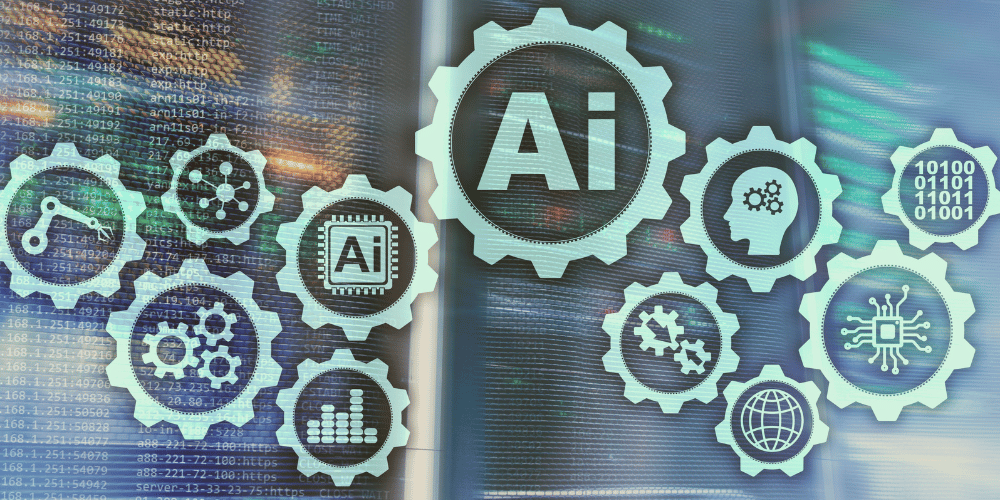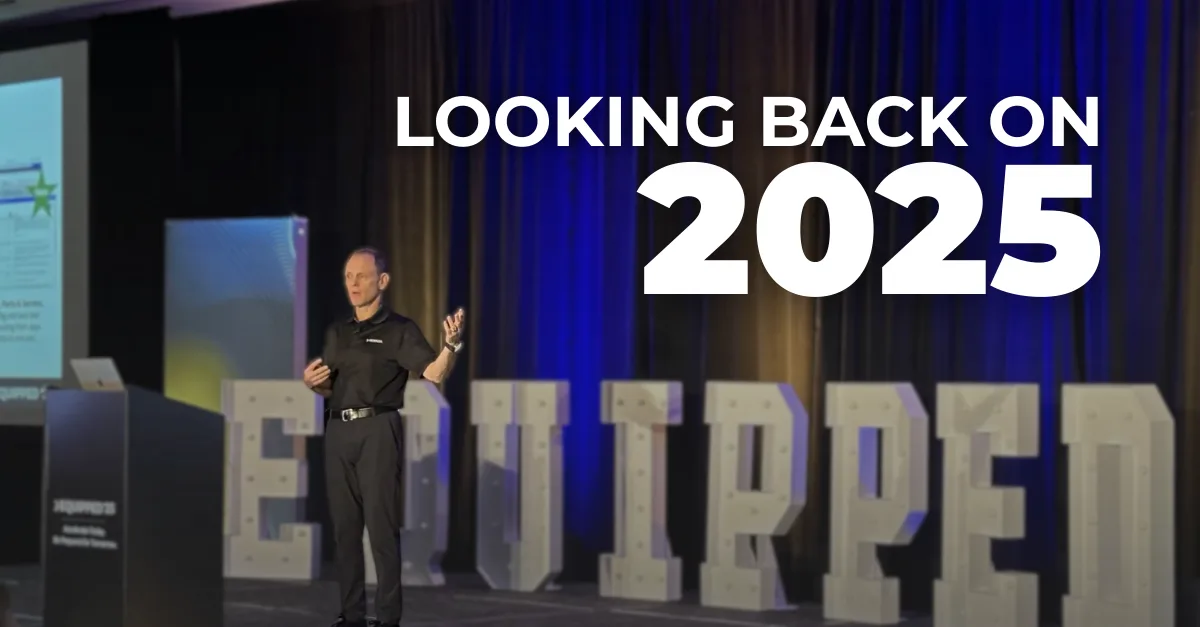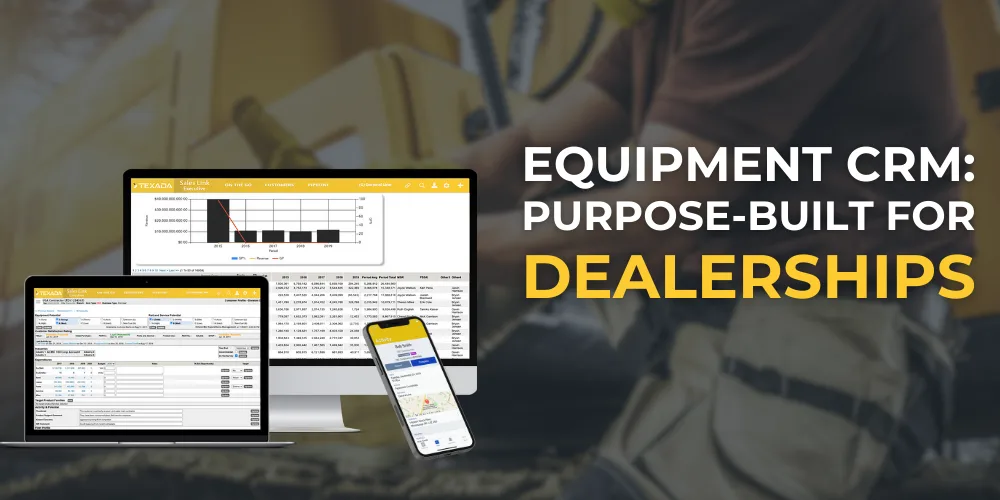Learn the three principles for equipment business leaders as they begin to implement artificial intelligence as part of their ongoing strategy from an industry expert.
In an era where innovation fuels efficiency and competitiveness, the integration of Artificial Intelligence (AI) stands as a pivotal asset for heavy equipment businesses seeking sustainable growth.
In a recent presentation, Ben Cox, Chief Product Officer at Texada Software, shared with an industry group of equipment dealer and rental business leaders the three key principles for effectively implementing AI in heavy equipment businesses.
By using these principles, heavy equipment business leaders can begin to develop AI strategies that bring results and help them to reach their business goals.
Principle 1: A Customer-Centric Approach
When analyzing any new technology, it is important to always begin with customer pain points. This customer-centric approach aligns with a core principle of effective business strategy, but it is also a litmus test for the efficacy of AI in practice.
According to a Boston Consulting Group (BCG) study, businesses can improve both the quality and quantity of their services by using AI tools. These tools, when applied effectively, can help address the challenges that customers face. For instance, by using AI, businesses can optimize their rates, making their services more attractive to customers.
“Our approach is not to say that we have a cool AI tool,” said Ben Cox, Chief Product Officer at Texada Software at a recent user conference. “Our approach is to identify the problems that are showing up in the day-to-day business operations of our customers. They are the ones asking the questions. Can we do this? How can we more effectively use modern tools that are now available? We want to use AI to better understand and answer these questions.”
Customer satisfaction and retention studies from analysts such as McKinsey indicate that optimizing customer experience achieves revenue growth and cost reductions. Additionally, companies offering exceptional customer experience can exceed the gross margins of their competitors. These are primary indicators of success and in the case of improving these indicators, AI can play a pivotal role.
“Our approach is to identify the problems that are showing up in the day-to-day business operations of our customers. We want to use AI to better understand and answer these questions,” said Cox.
By starting with the concerns of the customer, businesses can begin the work of applying the second principle.
Principle 2: Start Small and Learn
The second pillar of the AI strategy outlined by Cox is the concept of starting small and learning along the way. This approach emphasizes the importance of not diving headfirst into complex, high-risk projects. Instead, businesses are encouraged to initiate manageable projects, gain insights, and build on those insights to create remarkable tools.
“We don’t want to deploy a bunch of resources into a science experiment that may or may not have any power,” he said. “Instead, let’s start with something tangible and then learn.”
According to the American Rental Association (ARA), businesses in the heavy equipment sector are increasingly adopting AI in their operations. However, the successful implementation of AI often begins with smaller projects that lay the foundation for more significant developments.
Principle 3: AI as an Enabler, Not a Replacement
Finally, Cox emphasized that AI should be seen as an enabler, not a replacement for human expertise. This principle stresses that the goal is to empower ordinary individuals with extraordinary AI tools, allowing them to excel in their customer interactions.
“What we’re actually trying to do is to take an ordinary human being and give them amazing tools, so that they can be heroes for their customers,” he said.
This perspective is corroborated by industry statistics, which show that businesses are indeed turning to AI to augment human capabilities rather than replace human workers. Today, AI is viewed as a tool that can enhance human performance, making it a valuable asset in this sector.
Next Steps for AI
To learn more about AI strategies for equipment business leaders, download the full Texada white paper Artificial Intelligence (AI) For Heavy Equipment Rental & Sales Businesses Part 1: A Practical Guide for Leaders featuring three key principles of AI in heavy equipment, five AI use cases, and more presented by Ben Cox and his team.
With these insights and strategies, equipment businesses like yours can look forward to a future where AI isn’t just a buzzword but a driving force behind their success.




